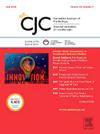Breaking Down Bias: A Methodological Primer on Identifying, Evaluating, and Mitigating Bias in Cardiovascular Research
IF 5.8
2区 医学
Q1 CARDIAC & CARDIOVASCULAR SYSTEMS
引用次数: 0
Abstract
Systematic error, often referred to as bias is an inherent challenge in observational cardiovascular research, and has the potential to profoundly influence the design, conduct, and interpretation of study results. If not carefully considered and managed, bias can lead to spurious results, which can misinform clinical practice or public health initiatives and compromise patient outcomes. This methodological primer offers a concise introduction to identifying, evaluating, and mitigating bias in observational cardiovascular research studies that examine the causal association between an exposure (or treatment) and an outcome. Using high-profile examples from the cardiovascular literature, this review provides a theoretical overview of 3 main types of bias—selection bias, information bias, and confounding—and discusses the implications of specialized types of biases commonly encountered in longitudinal cardiovascular research studies, namely, competing risks, immortal time bias, and confounding by indication. Furthermore, strategies and tools that can be used to minimize and assess the influence of bias are highlighted, with a specific focus on using the target trial framework, directed acyclic graphs, quantitative bias analysis, and formal risk of bias assessments. This review aims to assist researchers and health care professionals in designing observational studies and selecting appropriate methodologies to reduce bias, ultimately enhancing the estimation of causal associations in cardiovascular research.
消除偏倚:心血管研究中识别、评价和减轻偏倚的方法学入门。
系统误差,通常被称为偏倚,是观察性心血管研究中固有的挑战,并且有可能深刻影响研究结果的设计、实施和解释。如果不仔细考虑和管理,偏倚可能导致虚假的结果,这可能会误导临床实践或公共卫生举措,并损害患者的结果。本方法学入门简明介绍了在评估暴露(或治疗)对结果的因果关系的观察性心血管研究中识别、评估和减轻偏倚的方法。本综述利用心血管文献中备受关注的例子,从理论上概述了三种主要类型的偏倚——选择偏倚、信息偏倚和混淆,并讨论了纵向心血管研究中常见的特殊类型的偏倚,即竞争风险、不朽时间偏倚和指征混淆。此外,还强调了可用于最小化和评估偏倚影响的策略和工具,特别侧重于使用目标试验框架、有向无环图、定量偏倚分析和正式的偏倚风险评估。本综述旨在帮助研究人员和医疗保健专业人员设计观察性研究和选择适当的方法来减少偏倚,最终提高心血管研究中因果关系的估计。
本文章由计算机程序翻译,如有差异,请以英文原文为准。
求助全文
约1分钟内获得全文
求助全文
来源期刊

Canadian Journal of Cardiology
医学-心血管系统
CiteScore
9.20
自引率
8.10%
发文量
546
审稿时长
32 days
期刊介绍:
The Canadian Journal of Cardiology (CJC) is the official journal of the Canadian Cardiovascular Society (CCS). The CJC is a vehicle for the international dissemination of new knowledge in cardiology and cardiovascular science, particularly serving as the major venue for Canadian cardiovascular medicine.
 求助内容:
求助内容: 应助结果提醒方式:
应助结果提醒方式:


